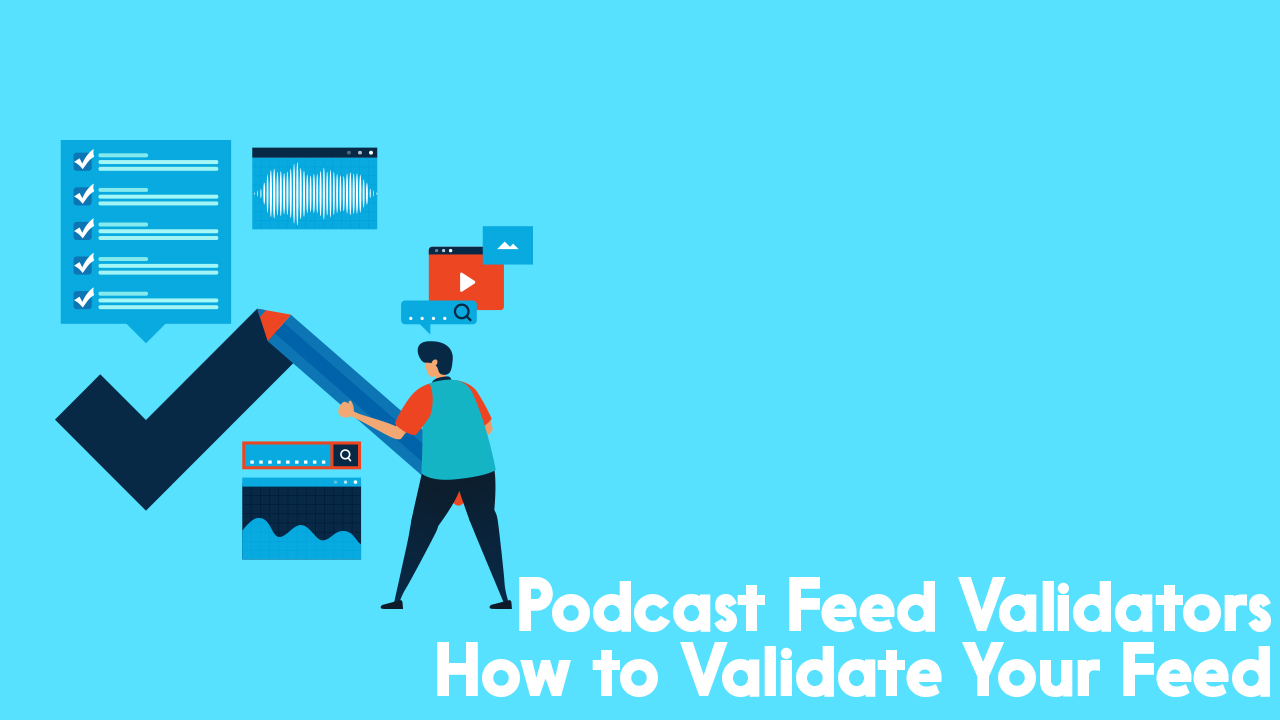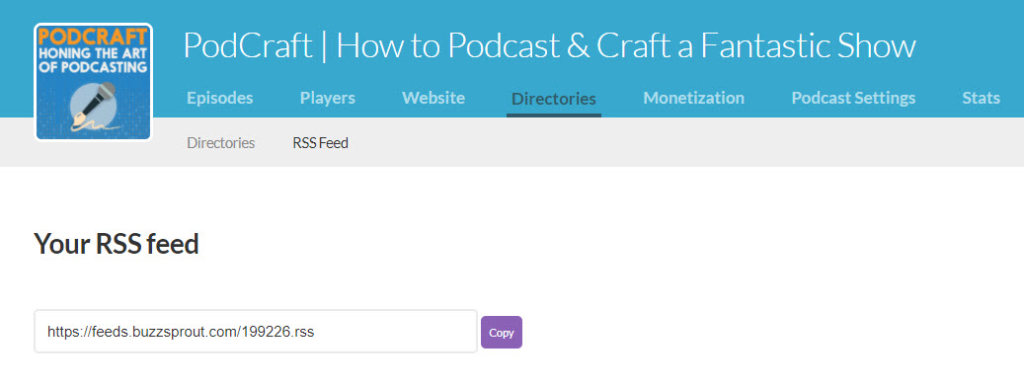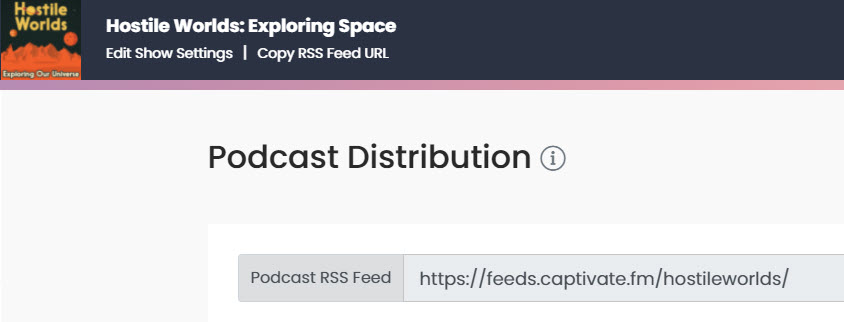Why Use a Podcast Feed Validator? How to Validate Your Feed

Whether you’ve been podcasting for a few weeks or a few years, you know that a significant amount of effort goes into every episode you publish. From investing in recording software to drafting the script, recording, and editing, your podcast is truly a labor of love. After all of the elbow grease you put into your podcast, wouldn’t it be nice if people could listen to it? Silly question, right?
Of course, you want people to listen and share with others, so you advertise your show. But there are additional steps you need to take for your audience to access your episodes. It’s time to learn about podcast feed validators, what they do, and why you should use one. Let’s dive in.
What is a Podcast Feed Validator and Should You Use One?
When you create an account with your chosen hosting provider, you’ll fill in all the details about your podcast series. The show’s name, a description, the category, and the cover art need to be added. Next, you’ll create a new episode page, upload your audio, and hit “publish.” After you publish, your podcast will be available to stream or download on your website, Apple Podcasts, Spotify, etc. Though they are available to stream, it does not mean they magically appear there. The episodes are instead fed from your podcast host through an RSS feed.
A podcast feed validator is essentially a health check for your RSS feed – it makes sure there are no blockages in the pipes, and that your episodes are available everywhere they should be.
Your RSS feed sends your podcast information out to podcast listening platforms via a public server. The platforms can read the content in your feed and then display it on their sites automatically. You will need to have a feed if you want anyone to listen to your show, period. While most podcast hosting providers have a secure RSS feed automatically integrated, you will still need to validate the feed. This ensures all of the necessary information is available on each podcast platform.
What Do Podcast Feed Validators Do?
To validate your feed, you will need to submit your feed’s URL into an RSS feed validator tool.
You’ll find your RSS feed inside your hosting account.

Here are some examples of digging out RSS feed links on both Buzzsprout and Captivate.

A podcast feed validator will scan for any errors and ensure your feed is readable by websites and search engines. However, some validators are better than others and add additional value in terms of analyzing SEO functionality and metadata. PodBase, for example, not only checks the formatting of your feed but also looks at your SEO, cover art, categories, and summary. Another popular choice, Cast Feed Validator, also checks the podcast formatting in addition to connection speed, artwork, and podcast metadata.
No matter which validator you choose, just remember that just because Apple’s iTunes platform accepts your feed does not mean that other platforms will. Apple has lowered its standards for feeds; however, poorly formatted RSS feeds will still fail to reach other major sites.
What Can “Break” Your Podcast Feed?
It’s essential to keep in mind that podcast feed validation needs to be accomplished periodically. This is not a one-and-done kind of thing. To ensure that your podcast’s RSS feed is error-free all of the time, validate it after every episode.
Certain things like oversized cover art, typos, website plug-in issues, or copying text from Google Docs or Microsoft Word into your show notes can break your feed so it’s important to check in on it.
So, Do You Need to Validate Your Feed?
You only need to use a podcast feed validator if you want your podcast episodes to reach listeners, which is the entire point of podcasting in the first place, right? Having a poorly formatted RSS feed means that your megaphone is turned off. Scream as loud as you want, but your sound won’t be amplified, and bystanders won’t hear you. Feed validators exist to correct any issues with your feed, so all podcasting apps feature your show and all of your episodes.
On our Podcast Industry Stats page, you’ll see that the number of podcasts in existence now is more than 2 million, including more than 47 million episodes.
Podcast topics range from lifestyle to parenting to cooking, finance, and true crime. There is genuinely no topic untouched in the podcasting world. But because there are so many podcasts and episodes to choose from, podcasters must fight for their audience’s attention. It’s not enough to publish an episode on Apple/iTunes; if you want visibility, you need to be where your listeners are: everywhere. By validating your feed, you can ensure that it has all of the necessary information, can be read correctly by podcast platforms, and reach the ears of your listeners 24/7, 365 days a year.
Next Steps
If you need help with planning your show, choosing your equipment, or setting up your software, be sure to check out Podcraft Academy. In there you’ll find extensive video tutorials, courses, templates, and get access to our weekly live Q&A coaching sessions!
